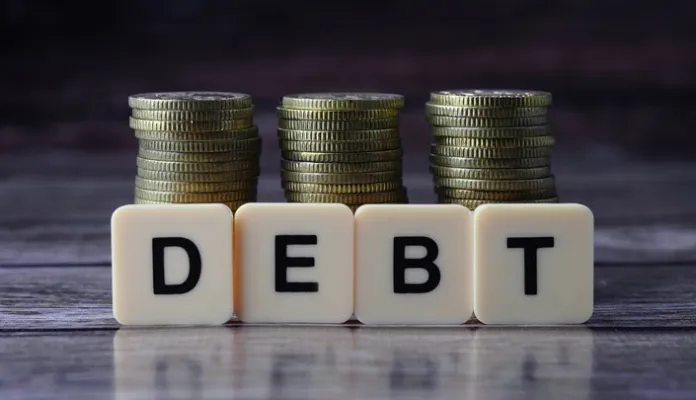…can Ghana secure the lifeline it desperately needs?
Ghana, like many countries around the world, has faced significant financial challenges, particularly in managing its debt. The West African nation is making determined efforts to address its debt issues and seek substantial relief. In a recent development, the government of Ghana has set forth an ambitious plan to reach an agreement on external debt treatment, both official and commercial, by early November 2023.
Official Debt Restructuring
Official debt restructuring is a complex process involving negotiations with multilateral institutions and bilateral creditors. According to the Ministry of Finance, Ghana has presented illustrative scenarios to the Official Creditor Committee (OCC) and Paris Club secretariat. These scenarios serve as a foundation for discussions among OCC members. government is keen on achieving an agreement in principle by early November 2023.
Ghana’s efforts align with expectations for IMF Board approval of the first review of the country’s programme with the fund, supported by the Extended Credit Facility. An agreement on official debt restructuring would signify a crucial step forward in Ghana’s pursuit of financial stability.
Commercial Debt Treatment
The challenges of debt management extend to commercial creditors, including regional and international bondholder groups. Ghana’s government has received scenarios from these groups and is actively reviewing them. Negotiations regarding the treatment of commercial debt are poised to follow in the coming days.
Government’s objective is clear: to seek an agreement that respects Ghana’s need for debt relief in accordance with the Debt Sustainability Analysis (DSA) and the principle of Comparability of Treatment. The goal is to reach an agreement in principle with commercial creditors by the end of 2023.
The Importance of Debt Relief
The need for debt relief in Ghana is a matter of financial prudence and economic stability. The country, like many others, has been grappling with the economic fallout resulting from the global pandemic and subsequent challenges to revenue generation and fiscal management.
Debt relief can help alleviate financial burdens, create fiscal space for investment in critical sectors, and bolster economic recovery. It is an essential step in safeguarding the well-being of Ghana’s citizens and the nation’s long-term prosperity.
The Consequences of Failing to Secure Debt Relief for Ghana
Ghana’s pursuit of a 30% to 40% debt relief from both official and commercial creditors is not just an economic strategy; it is a lifeline for the nation’s financial stability and long-term prosperity. Failing to secure this relief could have significant consequences, affecting not only government but also the lives and well-being of Ghana’s populace.
- Sustained Economic Instability: Without substantial debt relief, Ghana’s debt burden will remain overwhelmingly high. The country will continue to grapple with rising debt service costs, diverting a significant portion of its revenue away from essential public services and development projects. This will lead to a sustained period of economic instability.
- Reduced Public Services: High debt servicing costs can force government to cut back on essential public services such as healthcare, education, and infrastructure development. This reduction in public spending can have dire consequences for the quality of life and well-being of Ghana’s citizens.
- Economic Growth Stagnation: The burden of servicing a high debt load can stifle economic growth. Without significant relief, Ghana may struggle to attract investment that stimulate economic expansion. This could lead to stagnation and a prolonged period of economic hardship.
- Increased Poverty and Inequality: Economic instability and reduced public services can exacerbate poverty and inequality. Vulnerable populations, in particular, could face greater challenges accessing healthcare, education and other social services. Income disparities may widen, creating social tensions.
- Weakened Investment Climate: High debt levels and economic instability can undermine investor confidence. This may deter foreign direct investment and hinder domestic business growth, resulting in limited job opportunities and weaker economic prospects for Ghanaians.
- Credit Rating Downgrades: Persistent challenges in managing the debt burden could lead to further credit rating downgrades. A lower credit rating can make it more expensive for Ghana to borrow in international markets in the long-term, creating a cycle of debt accumulation.
- Lack of Resources for Critical Sectors: The inability to secure substantial debt relief may force government to allocate a significant portion of its resources to debt-servicing rather than critical sectors like healthcare, education and infrastructure. This could hinder progress in achieving sustainable development goals.
- Diminished Sovereignty: Continued economic struggles may lead to a situation wherein Ghana’s economic policies are influenced or directed by international financial institutions or creditors, diminishing the nation’s economic sovereignty.
- Social Unrest: As economic challenges persist, the risk of social unrest and protests increases. Citizens may express their frustration over reduced services and limited opportunities, potentially leading to instability.
Conclusion:
Ghana’s proactive approach to debt restructuring is a significant step toward addressing its financial challenges. As government works with official and commercial creditors, the hope is to secure agreements which provide the necessary debt relief while ensuring financial stability.
The nation’s economic stability, provision of public services and overall well-being of its citizens are at stake. It is a critical juncture in Ghana’s economic history, and the outcome of these negotiations will have a profound impact on the nation’s future. Therefore, government’s efforts to secure debt relief are not just a financial strategy; they are a vital step toward safeguarding Ghana’s prosperity and stability.
Korsi is an Economic Policy & Financial Analyst and Yakubu is a Development Economist










